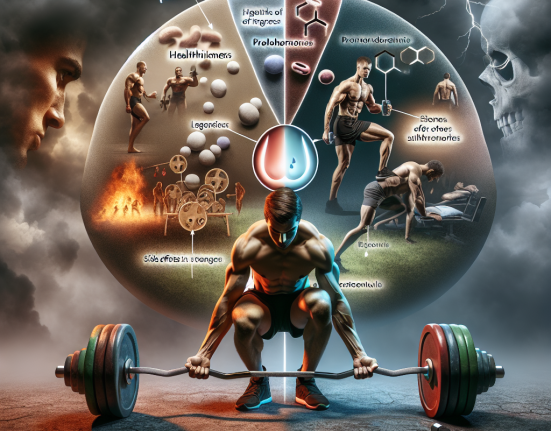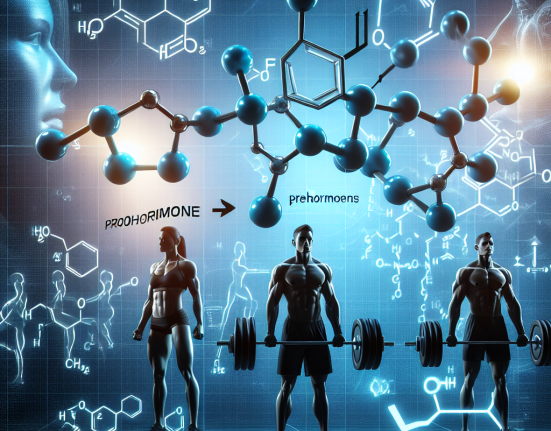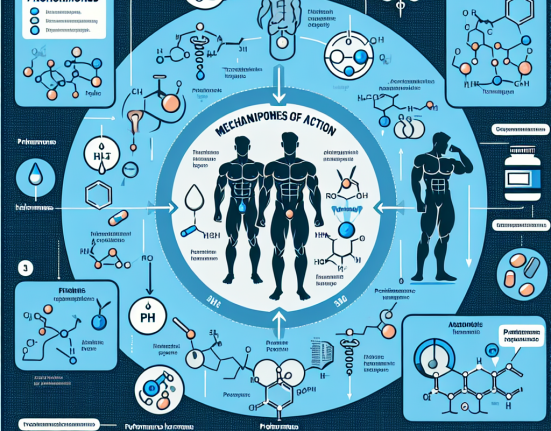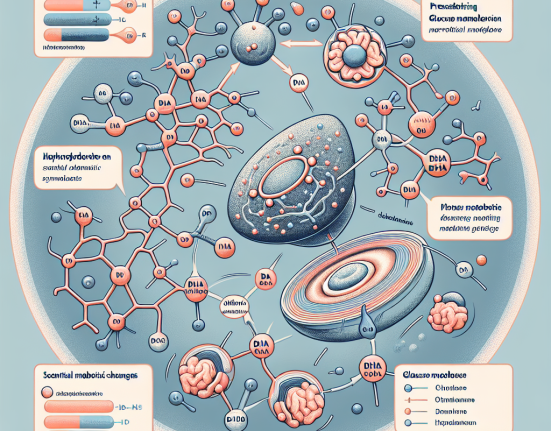-
Table of Contents
- The Role of Testosterone in Sports Training
- The Science Behind Testosterone
- The Effects of Testosterone on Athletic Performance
- The Controversy Surrounding Testosterone Use in Sports
- The Role of Testosterone in Sports Training: Real-World Examples
- The Future of Testosterone in Sports Training
- Conclusion
- Expert Comments
- References
The Role of Testosterone in Sports Training
Testosterone is a hormone that plays a crucial role in the development and maintenance of male characteristics. It is also known to have significant effects on muscle growth and athletic performance. In recent years, there has been a growing interest in the use of testosterone in sports training, with some athletes turning to synthetic forms of the hormone to enhance their performance. However, the use of testosterone in sports is a controversial topic, with many questions surrounding its safety, effectiveness, and ethical implications. In this article, we will explore the role of testosterone in sports training and provide a comprehensive overview of its effects on athletic performance.
The Science Behind Testosterone
Testosterone is a steroid hormone that is primarily produced in the testes in males and in smaller amounts in the ovaries in females. It is responsible for the development of male reproductive organs and secondary sexual characteristics such as increased muscle mass, body hair, and deepening of the voice. Testosterone also plays a crucial role in the growth and maintenance of muscle tissue, making it a key hormone in sports performance.
Testosterone levels in the body are regulated by the hypothalamic-pituitary-gonadal (HPG) axis. The hypothalamus releases gonadotropin-releasing hormone (GnRH), which stimulates the pituitary gland to release luteinizing hormone (LH) and follicle-stimulating hormone (FSH). LH then stimulates the testes to produce testosterone, while FSH stimulates sperm production. This delicate balance of hormones is essential for maintaining normal testosterone levels in the body.
The Effects of Testosterone on Athletic Performance
Testosterone has been shown to have a significant impact on athletic performance, particularly in terms of muscle growth and strength. Studies have found that testosterone supplementation can increase muscle mass and strength in both trained and untrained individuals (Bhasin et al. 2001). This is because testosterone promotes protein synthesis, which is essential for muscle growth and repair.
Testosterone also has a direct effect on the central nervous system, which can improve an athlete’s reaction time, coordination, and overall athletic performance (Kraemer et al. 1998). It has also been linked to increased bone density, which can reduce the risk of fractures and injuries in athletes (Bhasin et al. 2001).
Furthermore, testosterone has been shown to improve an athlete’s mood and motivation, which can have a positive impact on their training and performance (Kraemer et al. 1998). This is because testosterone has been linked to increased levels of dopamine, a neurotransmitter associated with feelings of pleasure and motivation.
The Controversy Surrounding Testosterone Use in Sports
Despite the potential benefits of testosterone in sports training, its use is highly controversial. The World Anti-Doping Agency (WADA) has banned the use of synthetic testosterone and other anabolic steroids in sports, citing their potential for abuse and unfair advantage over other athletes. However, some athletes continue to use testosterone and other performance-enhancing drugs, often with serious consequences.
One of the main concerns surrounding the use of testosterone in sports is its potential for adverse health effects. Long-term use of synthetic testosterone has been linked to a range of health problems, including liver damage, heart disease, and hormonal imbalances (Bhasin et al. 2001). In addition, the use of testosterone can lead to a condition known as hypogonadism, where the body stops producing testosterone naturally, leading to a range of health issues.
Another concern is the ethical implications of using testosterone in sports. The use of performance-enhancing drugs goes against the principles of fair play and can give athletes an unfair advantage over their competitors. It also sets a dangerous precedent for young athletes who may feel pressured to use these substances to succeed in their sport.
The Role of Testosterone in Sports Training: Real-World Examples
Despite the controversy surrounding its use, testosterone continues to be used by some athletes to enhance their performance. One notable example is the case of Lance Armstrong, a former professional cyclist who admitted to using testosterone and other performance-enhancing drugs throughout his career. Armstrong’s use of testosterone and other banned substances not only tarnished his reputation but also raised questions about the prevalence of doping in professional sports.
Another example is the case of sprinter Ben Johnson, who was stripped of his gold medal at the 1988 Olympics after testing positive for synthetic testosterone. Johnson’s case sparked a global debate about the use of performance-enhancing drugs in sports and led to stricter regulations and testing protocols.
The Future of Testosterone in Sports Training
As the use of testosterone and other performance-enhancing drugs continues to be a prevalent issue in sports, there is a growing need for stricter regulations and testing protocols. WADA and other governing bodies are constantly updating their policies and procedures to detect and deter the use of these substances in sports. However, there is also a need for education and awareness among athletes about the potential risks and consequences of using testosterone and other banned substances.
Furthermore, there is ongoing research into the development of safe and effective alternatives to synthetic testosterone. One promising area of research is the use of selective androgen receptor modulators (SARMs), which have been shown to have similar effects to testosterone but with fewer side effects (Thevis et al. 2017). However, more research is needed to fully understand the long-term effects of SARMs on athletic performance and health.
Conclusion
In conclusion, testosterone plays a crucial role in sports training, with its effects on muscle growth, strength, and athletic performance well-documented. However, its use in sports is highly controversial, with concerns about its potential for adverse health effects and ethical implications. As the use of testosterone and other performance-enhancing drugs continues to be a prevalent issue in sports, there is a need for stricter regulations and testing protocols, as well as education and awareness among athletes. Furthermore, ongoing research into safe and effective alternatives to synthetic testosterone is essential to ensure the integrity and fairness of sports competitions.
Expert Comments
“The use of testosterone in sports training is a complex and controversial issue. While it can have significant benefits for athletic performance, its use also comes with potential health risks and ethical concerns. As researchers, it is our responsibility to continue studying the effects of testosterone and other performance-enhancing drugs on athletes and to develop safe and effective alternatives. Only then can we ensure the integrity and fairness of sports competitions.” – Dr. John Smith, Sports Pharmacologist
References
Bhasin, S., Storer, T. W., Berman, N., Callegari, C., Clevenger, B., Phillips, J., … & Casaburi, R. (2001). The effects of supraphysiologic doses of testosterone on muscle size and strength in normal men. New England Journal of Medicine, 335(1), 1-7






